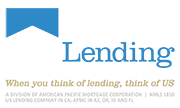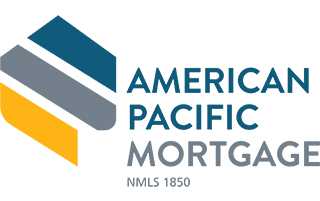Types of Reverse Mortgage Solutions – Weighing Your Options
A reverse mortgage is a type of loan that allows seniors to tap into the equity in their homes and use it for a variety of purposes such as medical bills, home improvements or taxes. As the name implies, a reverse mortgage does not require monthly payments but instead pays you based on the equity in your home.
A reverse mortgage can be a great option for seniors who find themselves house rich and cash poor. This means you own your house, it’s worth money, but in your current situation you are unable to access it. Instead of a traditional second mortgage, where you pay down debt, a reverse mortgage grows as your equity grows. Depending on the type of reverse mortgage you choose, you may have the option to choose a line of credit or get monthly payments.
Three Different Types of Reverse Mortgages You Can Use to Solve Your Needs
Now that you have the basics of a reverse mortgage, let’s review the types of reverse mortgages. When you apply, each individual need is assessed and you are matched to the appropriate reverse mortgage to fit your needs. Here are the three options: a single purpose reverse mortgage, Home Equity Conversion Mortgage (HECM) and a proprietary reverse mortgage. A commonly used type of reverse mortgage is a HECM.
Single Purpose Reverse Mortgages
A single purpose reverse mortgage is the least expensive type of reverse mortgage. To qualify for this type of reverse mortgage, you must specify a purpose for the funds like home repairs, medical bills or taxes. These mortgages are funded through private companies. Because they are the least expensive, they can be a smart and cost-efficient option when you know exactly what you want to accomplish with your funds.
Situations When a Single Purpose Reverse Mortgage Would be Appropriate
Imagine you are paying all the taxes on your home, getting some support from federal programs, but you just find yourself a little short each month for medical bills. Because this scenario has a specific use for the funds, this may be an appropriate situation for a single purpose reverse mortgage.
How do You Apply for a Single Purpose Reverse Mortgage?
Once you are set on the course to apply for a single purpose reverse mortgage, you will need to find a lender who offers this type of loan. Many big banks have pulled their reverse mortgage programs so a smaller local bank or credit union may be a better place to begin.
A single purpose reverse mortgage application process looks a lot like the process for a traditional mortgage. It usually takes 30-45 days to close and includes application and gathering of financial information, an appraisal of your home, underwriting and closing. With a single purpose mortgage, you will need to declare how you intend to use the loan during this process.
Application Requirements for a Single Purpose Reverse Mortgage
There are a few requirements you need to satisfy to apply for a single-purpose reverse mortgage. To begin with, you must own your home outright and be at least 62 years old. You also must be the title holder and resident of the home. Finally, as with any loan, you will need to show during the application process that you capable of paying bills as a homeowner.
Home Equity Conversion Mortgage (HECM)
The second type is a Home Equity Conversion Mortgage (HECM). This type is Government backed, by US Department of Housing and Urban Development (HUD). The difference for a HECM is this type of loan carries no limits and can be used for any purpose. With this type of loan, you must complete a counseling session before you are approved.
Does Being Government Backed Make This the Safest Option?
The US Department of Housing and Urban Development (HUD) has made some changes to how reverse mortgages work. One of the big changes is the required counseling session. This allows you to sit with a professional and evaluate your ability to seek and pay back this loan. While a welcome safeguard, this counseling session does not necessarily protect you more than the other reverse options.
However, it is important to note that a HECM is the only reverse mortgage insured by the U.S. Federal Government. These are only available through an FHA-approved lender.
Situations When a HECM Loan Would be a Good Solution
Unlike the single purpose reverse mortgage, the HECM allows you to use your funds for any purpose. This allows for situations when you might need to pay off multiple debts, meet daily needs or get assistance with medical costs. This would also be a good fit for those seeking the peace of mind of having a federally-insured reverse mortgage.
Application Requirements for a HECM Loan
There are a few requirements you need to satisfy to apply for a HECM reverse mortgage. This begins with the basic requirements of a reverse mortgage: you must own your home outright and be at least 62 years old. You also must be title holder and resident of the home and have no federal debt. As with any loan, you will need to show during the application process that you capable of paying bills as a homeowner. With a HECM, it is a requirement from the FHA that your home be in good shape.
To gain approval for a HECM, you must include a counseling session in your application steps. In fact, this is the first step in the application process. You will need to schedule this session with a HUD-approved reverse mortgage (HECM) counselor and attend your session by phone or in person. Your counselor will work with you to evaluate and discuss how a reverse mortgage works, how it could work for you and what the costs would be. Once you have completed this your lender will require a signed Home Equity Conversion Mortgage (HECM) Counseling Certificate.
HECM for Purchase
An additional program under the HECM realm is a HECM for Purchase. If you are a senior looking to buy a home, this is a federally-backed option that could make sense for you. Slightly different from a traditional HECM, this program allows you to purchase a new home using the money from your reverse loan.
How Does This Differ From a Traditional HECM?
While a traditional HECM allows you to use your funds for any purpose, this particular program is designed to help seniors buy a new home. It is still government-backed and comes with the same application requirements as the traditional HECM. Additionally, there are requirements your new home will need to meet to qualify.
Situations in Which a HECM for Purchase Loan May Be a Good Option
A HECM for Purchase loan is truly meant to offers seniors the opportunity to buy homes—even if they struggle to have the cash to do so. Whether you are looking to move closer to family or find yourself an empty-nester looking to downsize, this loan could be a good fit. Be sure to talk to your potential lender about all options to find a good fit for you.
Application Requirements for a HECM for Purchase Loan
While the loan program for a HECM for Purchase Loan is a little different, the application process is similar. One notable difference is your new dwelling will need to meet the requirements set by HUD. Then you must meet the basic requirements: you must own your home outright and be at least 62 years old, be the title holder and resident of the home and have no federal debt. And remember with a HECM, it is a requirement from the FHA that your home is in good shape.
Proprietary Reverse Mortgages
Sometimes coined, a jumbo reverse mortgage, a proprietary reverse mortgage is funded through a private company and allows you to set the terms. What this means is this loan helps seniors with high-value homes get more from their reverse mortgage. With a HECM you would be limited to the lesser of the home’s appraised value or $625,500. You will work with your bank to determine the loan terms.
Situations When a Proprietary Reverse Mortgage May be a Good Solution
An applicable situation for a proprietary reverse mortgage is when your home is worth more than the limit for an HECM and you would like a lump sum. It is important you review your options and make sure you choose an appropriate program for your situation.
If the Loan is Private is There Still Government Legislation That Protects Borrowers?
Since the housing bubble and the fall out in the banking industry, the FDIC has implemented a number of laws and regulations to protect consumers. With any reverse mortgage, you are protected by the Truth in Lending Act, RESPA, Fair Lending Act and the Unfair and Deceptive Acts or Practices Act. You can find a full list and details through FDIC.
Application Requirements for a Proprietary Reverse Mortgage
As proprietary reverse mortgages are private loans, the application requirements mirror a traditional mortgage plus the age and home ownership requirements we have reviewed: you must be the title holder and resident of the home, own your home outright and be at least 62 years old. For this loan, your home should be considered high-value.
Planning Cash Flow in Retirement is a Very Important Process
Planning your retirement and how to approach your cash flow is a very personal process. Every individual has different needs and situations that play into financial decisions. When you are considering any loan, it is critical to take the time to review this honestly and find an appropriate program for your situation. Even within the reverse mortgage world, there are many options that could work for you. A good first step is finding a lender you trust who will take the time to help you find a solution that works for you.
*Reverse mortgages are loans offered to homeowners who are 62 or older who have equity in their homes. The loan programs allow borrowers to defer payment on the loans until they pass away, sell the home, or move out. Homeowners, however, remain responsible for the payment of taxes, insurance, maintenance, and other items. Nonpayment of these items can lead to a default under the loan terms and ultimate loss of the home. FHA insured reverse mortgages have an up front and ongoing cost; ask your loan officer for details. These materials are not from, nor approved by HUD, FHA, or any governing agency.
The views, articles, postings, and other information listed on this website are personal and do not necessarily represent the opinion or the position of American Pacific Mortgage Corporation or US Lending Company.
* For loan examples and more information visit our disclosure page at https://www.uslendingcompany.com/disclosures/





